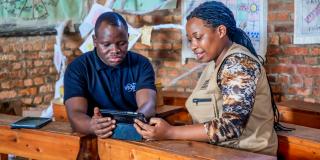
Celestin Karekezi is a volunteer from Rwanda who is supporting early childhood educators to adopt play-based learning techniques in classroom.
VSO's Let's Learn Through Play project uses play-based learning to support children in learning problem solving, strategic thinking and inter-personal skills, all while enjoying the learning process. Learn more about the difference volunteers like Celestin are making.
Meet Celestin
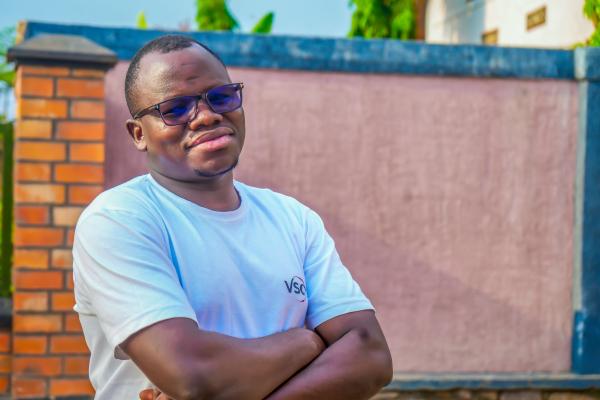
"My passion for education first started when I attended teacher training college, where I studied social studies education. After graduating from college, I became a teacher and worked in public schools for four years. Later, I went to university to further my studies, focusing on early childhood education.
After graduating from university, I returned to teaching for another four years. Then came the COVID-19 pandemic. Towards the end of the pandemic, I found the opportunity to join VSO and began volunteering on the "Read, Learn Through Play" project, part of VSO's Let's Learn Through Play initiative.
What made you interested in joining VSO?
I had colleagues who joined VSO before me, and they shared the positive impact they experienced through their service with the organisation.
As a recent university graduate, I wanted an opportunity to apply my knowledge in practice. VSO offered the perfect platform to improve my skills while working to make a meaningful impact.
Volunteering is an excellent way to contribute to Rwanda's development. By serving the community, I am helping to create change and support progress. Joining VSO gave me the opportunity to continue my journey in education and community service while building a strong foundation for my professional growth.
As I learned more about VSO and the project, I was particularly intrigued by the organisation's approach to pairing volunteers with community volunteers. The expectation of working as a blended team, where collaboration, knowledge exchange, and shared ideas are at the forefront, was fascinating to me.
This model not only enhances the impact of the work we do but also creates an environment where everyone learns from one another. It’s an approach that promotes growth, mutual respect, and a strong sense of teamwork, which I found very appealing.
What stood out to you about the ‘Let’s Learn Through Play’ project?
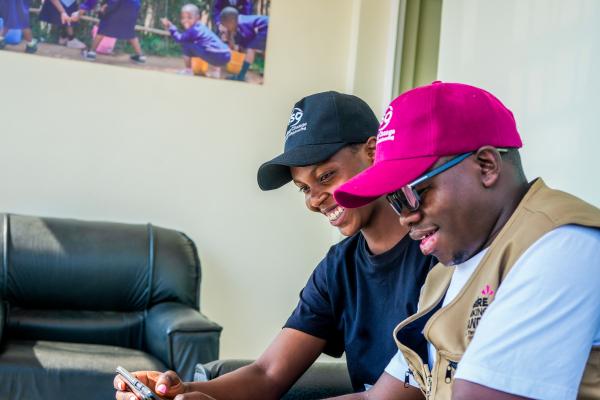
I joined VSO without prior experience working within a large team. My previous experience was mostly with children and parents. During the orientation, I remember they told us we would be heading into the field to work with a variety of people from different backgrounds and levels. This was eye-opening for me.
For example, we worked with teachers who had varying levels of experience, head teachers with different educational qualifications—sometimes even higher than mine—and education officials at the district level. Learning how to engage and collaborate with them to achieve the project’s outcomes was invaluable.
I recall interacting with district leaders, including mayors, and engaging them in discussions about the project’s goals and activities. When you join a district, you need to involve local leaders and decision-makers to ensure the project's success. Gaining the skills to engage with such a wide range of stakeholders was a fantastic learning experience for me.
Additionally, I learned a lot from my colleagues. The project covered the entire country, meaning there were 30 districts in Rwanda with 30 volunteers working in different areas. We shared experiences, challenges, and best practices, which was incredibly enriching.
When I joined, I also had the chance to work with colleagues who had been part of previous VSO projects, like Uteguru XOM. These colleagues already had field experience and knowledge about how projects worked. Collaborating with them allowed me to learn from their expertise and apply that to my work, helping me serve my community more effectively.
Another significant aspect was engaging with the community, especially parents. Apart from working with teachers and local leaders, we often mobilised parents.
This was an amazing experience—interacting with them, hearing their stories, and discussing how they could support their children’s learning through play, both at school and at home. It was incredible to see parents sharing their experiences and for us to provide them with practical tools and ideas to encourage learning through play.
What was it like when you first started volunteering?
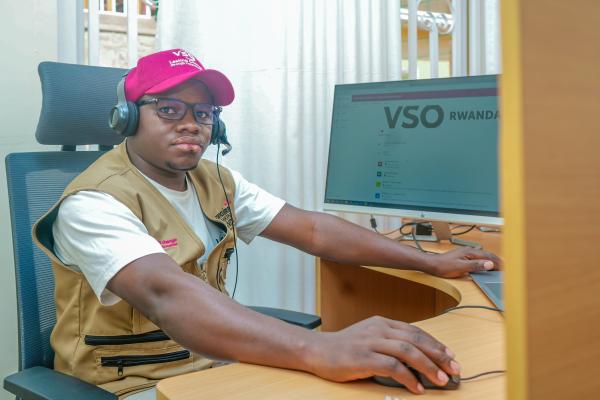
VSO provided me with a comprehensive orientation, including online courses, which helped me develop additional skills to take into the field. These courses, along with collaborating and learning from my colleagues, gave me valuable insights and prepared me for the challenges ahead.
The purpose of the project is to enhance the support for early childhood education teachers in implementing play-based approaches in the classroom learning activities.
When we went to schools, we introduced new methods to complement the approaches teachers were already using. It was important to build trust and help teachers feel comfortable with the new methods we were bringing.
Instead of imposing these methods, I started by observing their existing practices. Then, I guided and coached them, introducing the play-based approach gradually.
Teachers often responded with surprise, saying, "Oh, I didn’t think this could work." We would try it for the first time, and both the children and the teacher would enjoy it. From there, I would suggest adapting the method to other subjects.
I maintained regular contact with the teachers and continued to interact with them through calls, coaching sessions, and daily school visits. This ongoing engagement was a vital part of my approach, ensuring that teachers felt supported as they began implementing the new methods.
This experience has been incredibly rewarding, and it has allowed me to see first-hand the positive impact on both teachers and children.
What challenges did you face?
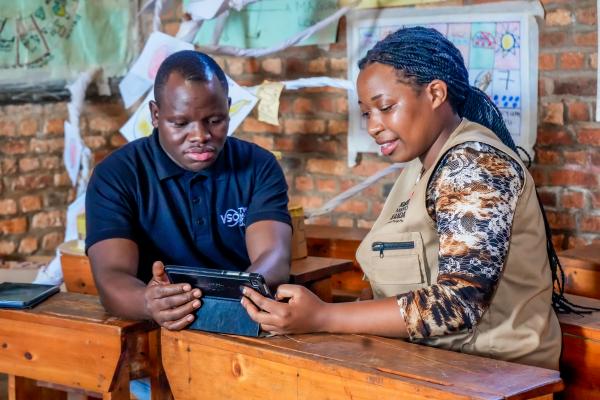
Of course, in our daily lives, challenges are always there, and we are here to provide lasting solutions and overcome them.
You are introducing new methods and trying to shift people from what they are used to doing. Transitioning them from their current approach to a new one was not easy, especially when it involved technology.
People don’t just change automatically, like flipping a switch. No, change takes time and often comes with resistance."
It was a day-to-day process of convincing them, showing them the impact. Of course, when you help people simplify their work and make it easier, they tend to engage more quickly rather than feeling forced into something unfamiliar. That’s why I realised that forcing change is not the right approach.
There were also moments when I encountered resistance. For example, I met an elderly teacher who was very set in his ways. When I introduced the idea of using play in the classroom, his first reaction was, "What kind of play are you bringing here?" He was resistant to shifting from the old system.
However, with the support of the headteacher, the dean of studies, and the Community of Practice — groups where teachers can regularly share experiences — they kept engaging with him. Today, that same teacher has become a mentor for new teachers, guiding them in implementing play-based learning. That, for me, was a great success.
Another challenge was at the community level. Many parents initially saw play as a waste of time. They would say, "Instead of playing with my child, I could be doing something more productive." But through parental engagement and mobilisation, parents started changing their perspective. They began encouraging each other: "Why are you not playing with your children?"
I remember one visit to an elderly grandfather. He told us that his grandchild had been building a model car using random household items. The child said, "Grandfather, I will make you a car when I grow up!" Since that family didn’t own a car, this was the child's way of imagining the future. The grandfather, moved by this, started playing with the child. That moment strengthened their bond and deepened their relationship.
Could you share a specific story about an individual or group you think you impacted the most through this project?
When I introduced play-based learning at a particular school, I noticed something concerning. Teachers were using a very rigid approach — teaching older students (around 12 years and above) in a way that left them sitting in class all day. They would stare at the same letter, "A," from morning until they went home.
“Through play-based learning, we created learning corners where children could engage in activities. I trained teachers on how to set up these corners and prepare interactive activities.
The results were remarkable. Instead of sitting passively from 8 AM to 12 PM, children were now actively participating. Before, many lost attention quickly. Some got tired, some fell asleep, others became restless or even fought in class.
Once teachers started engaging students in play-based activities, everything changed."
For instance, when teaching counting, we introduced bottle tops and empty boxes for hands-on activities for exploration. Instead of just writing numbers on the chalkboard and expecting students to memorize them, they were now learning by doing.
After lesson observations, I would ask teachers, "If you were the student, would you really understand this?" Gradually, teachers became more engaged, and today, they are much more active in implementing play-based learning compared to before.
Beyond my work in play-based learning, I also played a dual role. I started as a literature and professional tutor, but I was also involved in the EdTech (education technology) aspect of the project.
We introduced digital content using the VSOSCHOOL app, which is widely used here in Rwanda. At first, teachers were hesitant about using technology. I remember how some were afraid of even navigating a tablet, but over time, they became more comfortable.
We provided tablets at the schools, and I trained teachers on how to log in, navigate content, and troubleshoot basic issues.
If the app malfunctions, they know how to uninstall and reinstall it again and log in. If they accidentally delete their accounts, they can log back in without help. Today, these teachers are much more tech-skilled compared to when we first introduced the digital tools. That, for me, is a huge success.
What does active citizenship mean to you?
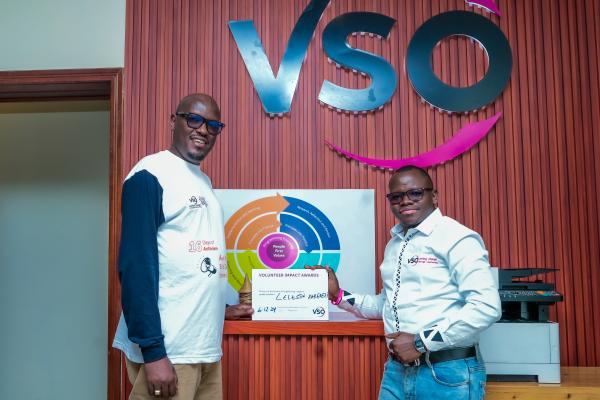
Creating active citizens is one of the approaches we use.
We equip and support teachers so that they become self-reliant in what they do. Not every day should they be waiting for someone to support them.
Because, at the end of the day, when we leave, what remains? That’s what we always focus on—ensuring that people can sustain themselves beyond the project’s timeline. Of course, when the project is ongoing, things are easier. But after, people must now act on their own.”
For example, we also build the teachers capacity to create their own play materials using locally available resources. It’s not about always depending on donations or receiving things for free.
For example, when a teacher wants to teach measurements, they might need ropes. But a teacher alone can’t make ropes for 50 children, so we encourage parental involvement, showing parents how to make ropes using banana fibres that they can give to their children to take to school. This way the teacher has plenty of materials for the children to use.
This is the kind of capacity-building we do—engaging both the community and the educators. That way we can empower people to be active in their own development.
How would you summarise the impact of volunteering with VSO?
We are changing lives in the community. That’s something you can see with your own eyes. You can visit these places and witness the transformation.
Before, people lived one way and after interacting with VSO, after participating in these programmes, they have achieved something new. That’s impact.
If someone reading your story is considering volunteering with VSO, what would you tell them?
As I always encourage my colleagues, VSO provides a lot of opportunities for its people to grow professionally, I would tell them to join VSO to develop their skills.
I often ask myself, If I hadn’t joined VSO, where would I be now? Probably somewhere else, but I wouldn’t have gained the same experiences and skills as I do. I encourage people to join VSO they will see the change."
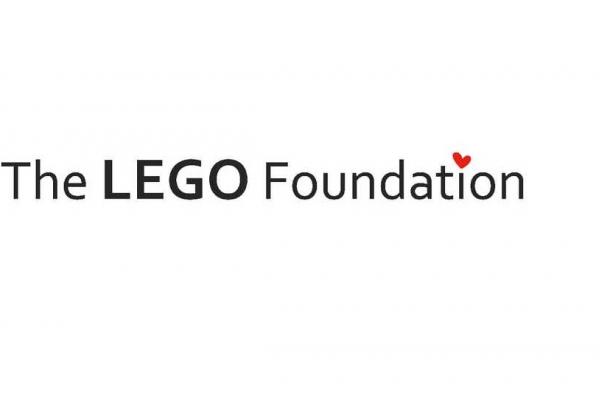
Let’s Learn Through Play
Funded by the Lego Foundation, Let's Learn Through Play — know locally as Twigire Mumikino Rwanda — is championing play as a tool for creating creative, engaged and resilient learners in Rwanda.
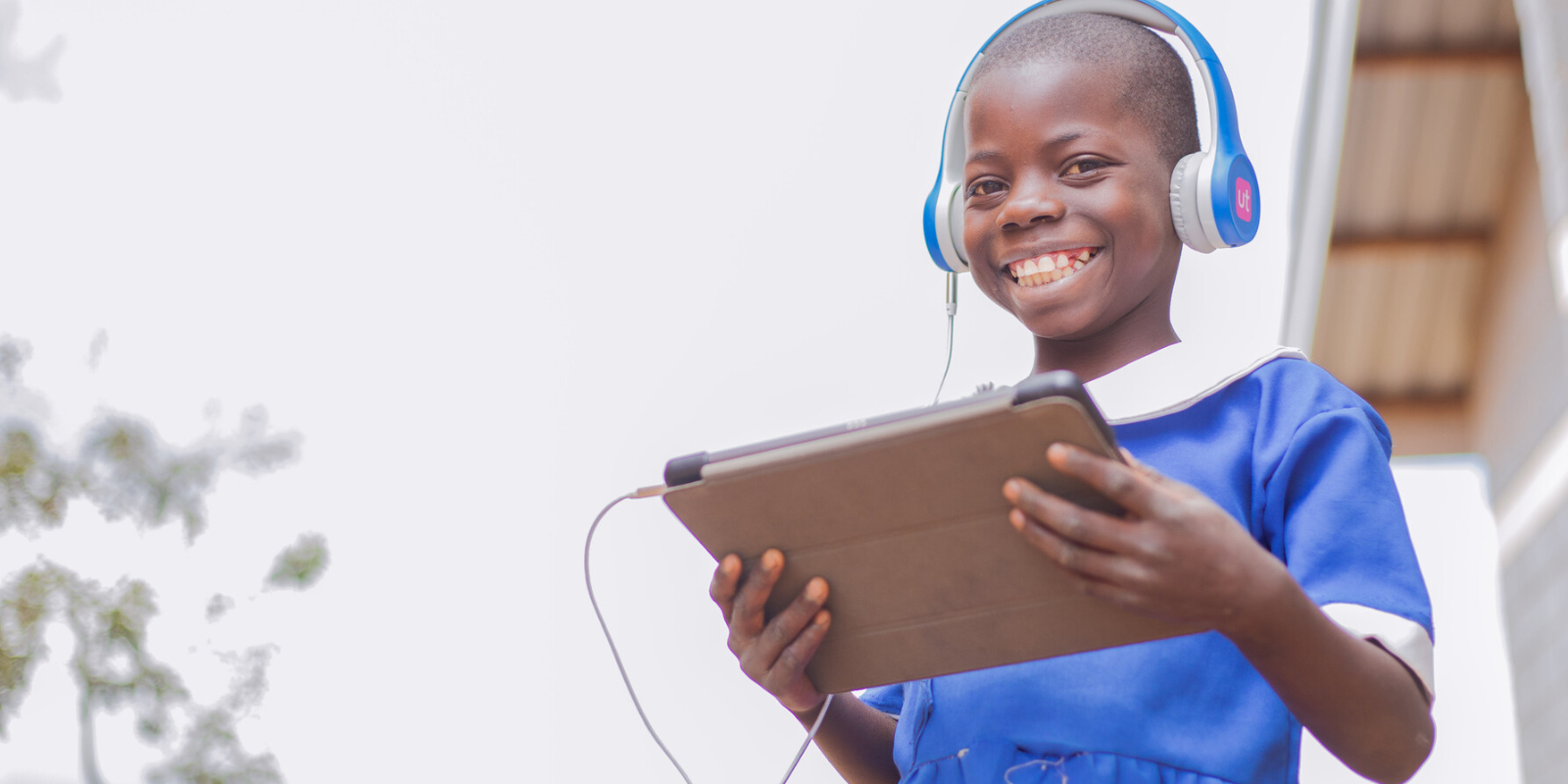
Support us with a donation
Read more
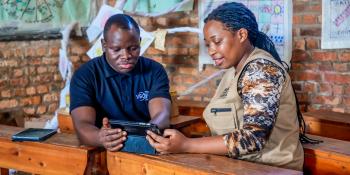
Using play to inspire learning in Rwanda
Learn how volunteers like Celestin are supporting children in Rwanda to learn through play. Children are taught problem solving, strategic thinking and inter-personal skills, all while enjoying the learning process.
Three ways we’re supporting local, eco-friendly business practices in Cambodia
On the Tonle Sap Lake, climate change, overfishing, deforestation, and the depositing of untreated industrial and domestic sewage, are all threatening the natural balance of the region. VSO has supported local people to adapt to this environment by developing green business practices.

The two volunteers empowering girls and young women in Mozambique
Nelma and Carmirene and are two volunteers working on VSO's EAGLE project in Mozambique. For Nelma and Carmirene, education is not just about school, it is about meeting people where they are and using the right tools to challenging harmful norms. Here are their stories.
